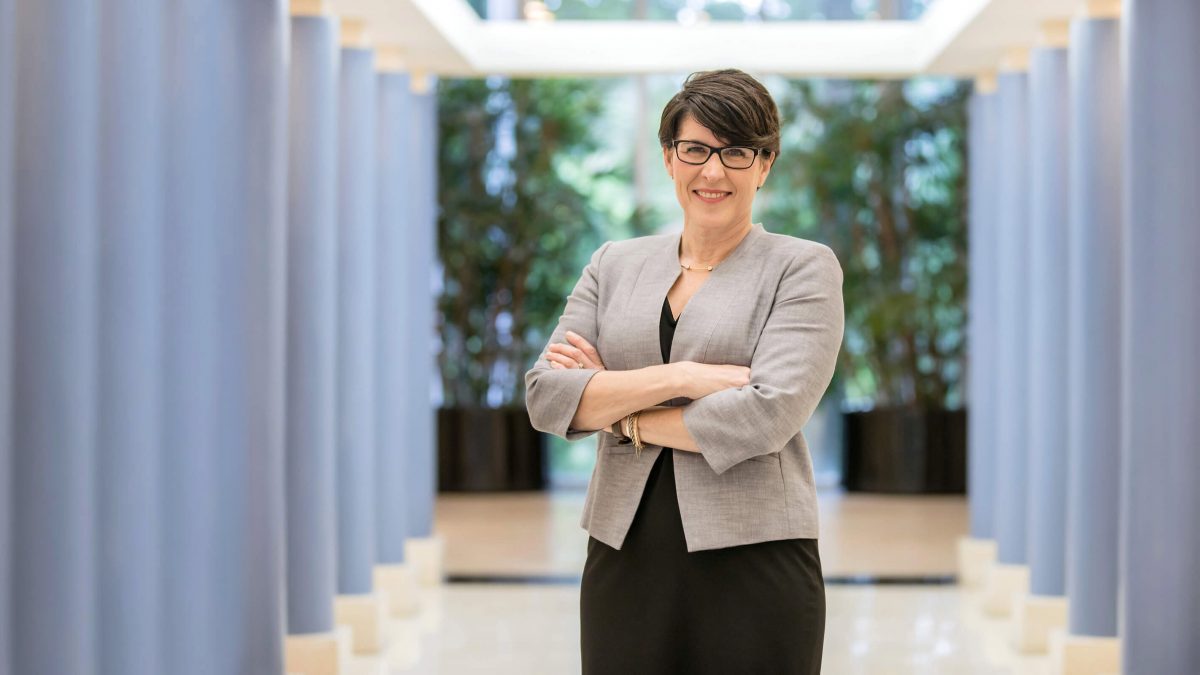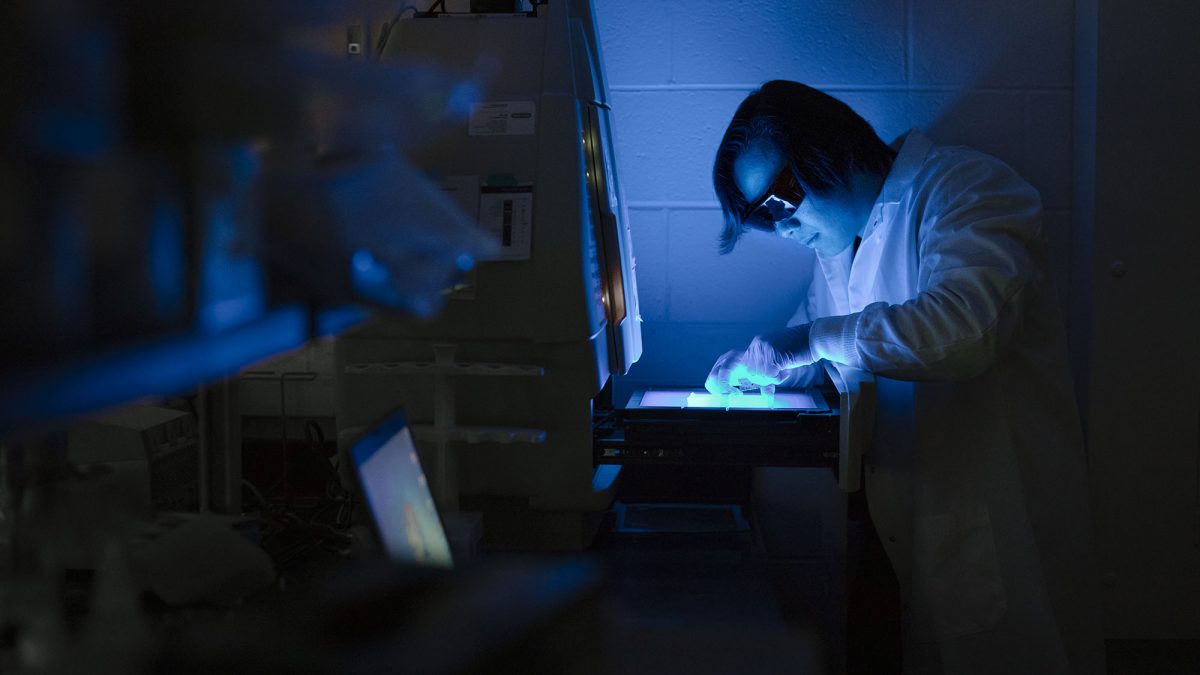The ‘visionary leader that Carolina needs today’
"He is deeply committed to our University and its mission, prioritizing student success, fostering interdisciplinary collaboration and addressing the critical needs of North Carolina and the world."
"He is deeply committed to our University and its mission, prioritizing student success, fostering interdisciplinary collaboration and addressing the critical needs of North Carolina and the world."
On Dec. 13, Kevin Guskiewicz was appointed as Carolina’s 12th chancellor. His aim: represent and elevate the community that makes Carolina the leading global public research university.
“My vision for Carolina is that we will move forward into the future with boldness and confidence because our work is vital for the people of our state, the nation and the world,” he said. “There is no institution in the world that is more capable of changing the future than our nation’s first public university. I am committed to championing our community, fighting for our values and demonstrating that we make a difference in the lives of all North Carolinians.”
In announcing the appointment, Richard Stevens, chair of the UNC Board of Trustees and the Chancellor’s Search Committee, praised Guskiewicz as the “visionary leader that Carolina needs today.”
“He is deeply committed to our University and its mission, prioritizing student success, fostering interdisciplinary collaboration and addressing the critical needs of North Carolina and the world,” Stevens said.
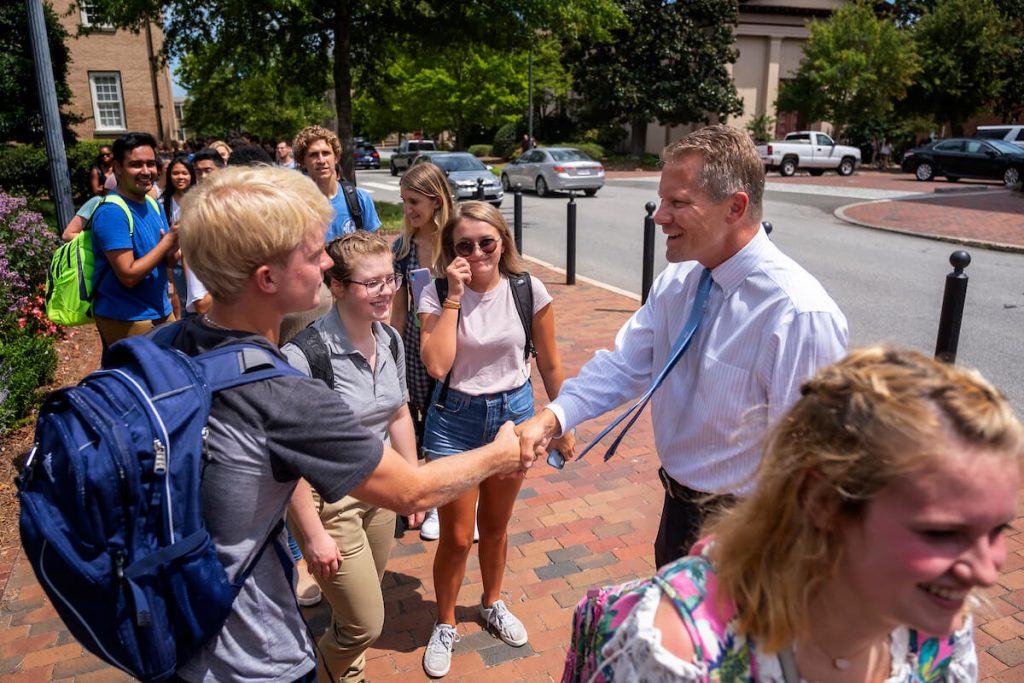
The best place to discover answers
Guskiewicz’s Carolina journey began almost 25 years ago.
With a Ph.D. in sports medicine, he was ready to push his research sparked by his observations as an athletic trainer for the Pittsburgh Steelers in the early 1990s.
Athletic trainers and team physicians treated concussions in “a very arbitrary manner,” said Guskiewicz, who grew up in Latrobe, Pennsylvania. “We didn’t have sophisticated testing for return-to-play decisions back then.”
A former high school football player, Guskiewicz loved the game’s ability to build character, teach discipline and strengthen teamwork. He wanted to make football and other contact sports safer.
At the University of Virginia, where he earned his Ph.D., Guskiewicz worked with Dave Perrin and others to develop a balance test for assessing concussive injury.
But Guskiewicz wanted to broaden his research. What were the long-term effects of head injuries? Could he identify rule changes and equipment improvements to make football and other sports safer? Where would be the best place to discover the answers to those questions?
The last answer was easy — Carolina.
“What drew me to Carolina was its culture of collaboration,” said Guskiewicz. “With support from our sports medicine physicians to coaches like Coach Mack Brown, who was on his first stint as Carolina’s football coach at the time, I was able to build a research team to study critical questions surrounding sports-related concussions and provide players, coaches and clinicians with the information they need.”
A visit to campus as a job candidate further confirmed his thinking. Guskiewicz called his wife, Amy, on the way back from Chapel Hill and told her the position “just felt right.”
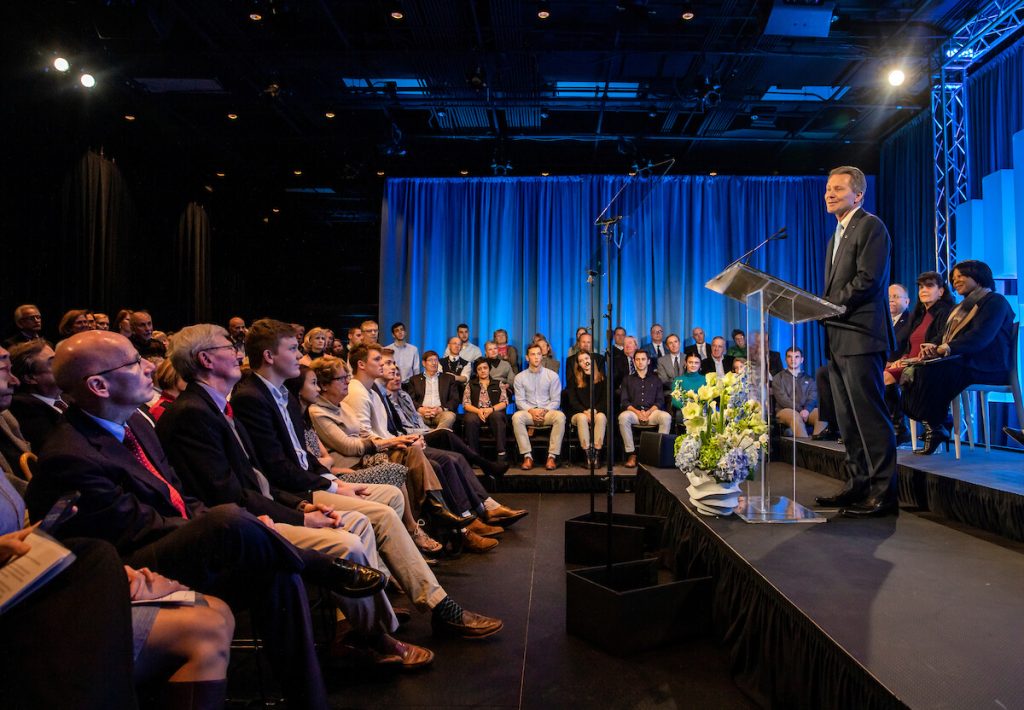
A firm grasp of the job
He became the Kenan Distinguished Professor of Exercise and Sport Science, then department chair. He is the founding director of both the Matthew Gfeller Sport-Related Traumatic Brain Injury Research Center and the Center for the Study of Retired Athletes.
Along with two graduate students, he refined and validated the balance test he started to develop at UVA, named it the Balance Error Scoring System (BESS) and launched it in 1998. It quickly became widely adopted by the sports medicine community to diagnose and manage concussions more accurately and rapidly.
He and his research team went on to be among the first to identify the long-term effects of multiple concussions, including cognitive impairment and depression in later life. His work has since influenced policy discussions about more stringent return-to-play guidelines and head-gear investigations that will improve the safety of athletes of all ages.
Ultimately, Guskiewicz rose to dean of the UNC College of Arts & Sciences, overseeing the largest academic institution at Carolina, with more than 70 academic departments, curricula, programs, centers and institutes.
Under his leadership, the College developed its first-ever strategic plan, overhauled the General Education curriculum and raised more than $400 million — well over half of its $750 million goal — as part of the Campaign for Carolina, which he helped plan.
When Guskiewicz was named interim chancellor in February 2019 following Carol Folt’s departure, he had a deep history and understanding of Carolina and what makes this university unique. Yet throughout his tenure as interim, Guskiewicz emphasized the importance of listening.
“I knew a lot about Carolina before becoming interim, but as interim I saw how much I still had to learn,” he said. “After conducting a 25-stop listening tour across campus, I came to an even greater understanding of Carolina’s passionate students, faculty and staff. I heard from them about their excitement, energy, strength, along with the challenges they face.”

A place where anything is possible
In 2011, Guskiewicz received a MacArthur Fellowship, commonly called a “genius grant,” in recognition of his work in concussion research. Two years later, Time named him — appropriately enough — a “Game Changer,” one of 18 “innovators and problem-solvers that are inspiring change in America.”
It’s that innovative, game-changing spirit that he brings to Carolina as chancellor. He points to the Global Guarantee and the UNC Institute for Convergent Science initiatives as just two examples of how Carolina can further its position as the leading global public university.
During his time as interim chancellor, Guskiewicz, alongside Provost Bob Blouin, introduced and refined the University’s proposed new strategic plan, Carolina Next: Innovations for Public Good, now being reviewed by the Board of Trustees. He re-launched the Tar Heel Bus Tour, emphasizing Carolina’s responsibility to serve the state of North Carolina. He launched the Campus Safety CommissionOpens in new window and conducted forums around diversity and inclusion efforts. Under his leadership, the University advanced initiatives focusing on digital lifelong learning, rural health and data science, among other areas.
One of the first things Guskiewicz learned at Carolina “is that it is a place where anything is possible,” he said. “Surrounded by so many passionate and quality people, I know we can succeed.”
At the same time, as he said early in his interim stint, success will depend on funding the University’s vision, and the Campaign for Carolina must play the leading role.
“We will need the Campaign for Carolina and our passionate alumni and donors who care deeply about the success of our University to also help. I’m confident that together we can raise the money we need to advance these important initiatives.”
That hasn’t changed in the intervening months — and the Carolina community is more than answering the call. Earlier this month, the campaign crossed the $3 billion mark, making Carolina only the second university in the South to reach $3 billion in a campaign. The total raised so far puts the drive at 71% of its $4.25 billion goal, with just 61% completed.
“I have been involved in this campaign from the beginning and seen its impact on the people of North Carolina, the nation and the world,” Guskiewicz said. “Our donors make life-changing research, student excellence and faculty support possible. I am grateful to each one of them for their passion for Carolina and eagerness to support our mission to be the leading global public research university.”
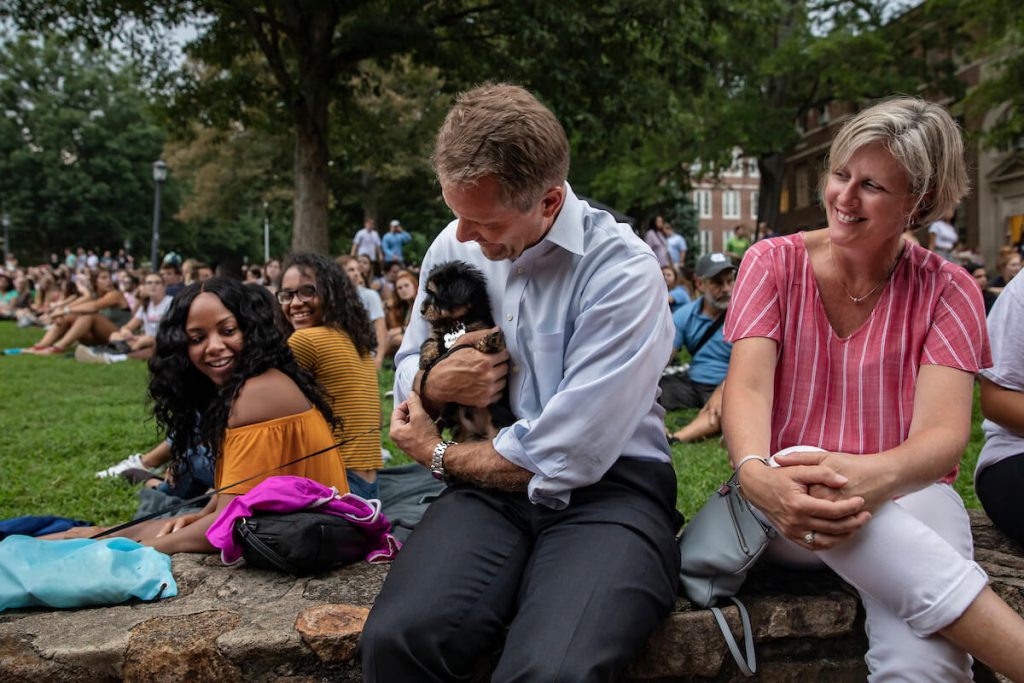
Editor’s note: This story includes reporting that originally appeared in The Well and Virginia magazine.

